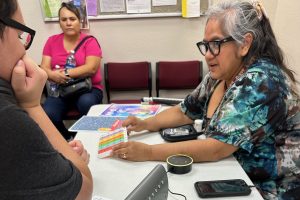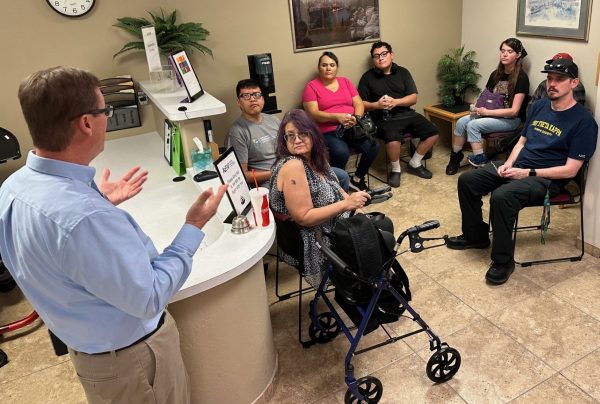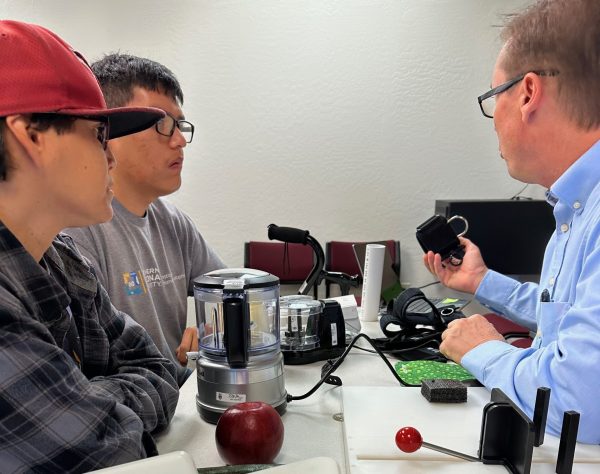Sakénya McDonald and Kyle W. Beam
What happens when students with disabilities gain access to cutting-edge assistive technology?
When “SPV” first received a Livescribe Echo Pen from their campus disability resource office, they were eager to discover how this new tool—which syncs written notes with audio recordings—might support their academic journey. However, outdated firmware, a complex setup process, and compatibility issues posed barriers to its use. With guidance from an assistive technology specialist (ATS) through the Advancing Assistive Technology for Learning and Accessibility in Higher Education for Students with Intellectual and Developmental Disabilities (ATLAS) Project, SPV overcame these challenges. They launched the Livescribe app, explored its features, and began integrating the pen into their daily academic routine. SPV not only gained confidence in using assistive technology (AT) but also developed valuable digital literacy and self-advocacy skills.

The ATLAS Project was funded by a two-year award from the Arizona Developmental Disabilities Planning Council. Before the project’s conclusion on June 30, 2025, ATLAS staff supported students with intellectual and developmental disabilities (I/DD) in navigating postsecondary education through the effective use of AT. This includes a wide range of tools, both high-tech and low-tech, that assist with learning, communication, organization, and daily tasks. By promoting AT awareness and use, the ATLAS Project was designed to enhance academic performance, foster self-determination, and ultimately build long-term independence among students.
ATLAS staff provided individualized support to students enrolled in the Institute for Human Development’s Supporting Inclusive Practices in Colleges (SIP-C) program, which was established in 2020 to help students with I/DD pursue their educational goals in inclusive settings. ATLAS staff complemented this mission by addressing barriers to AT use and providing targeted training to those who directly support students, including SIP-C educational coaches and peer mentors, as well as campus disability resource office staff. Students were guided through personalized assessments to determine ways in which AT could assist them. They also worked with the ATS to develop an individualized plan of action (IPOA), which helped them track AT devices they had used or were interested in exploring and enabled project staff to assess a student’s growth in areas related to self-determination and independence.

Field trips to partner organizations like the Arizona Technology Access Program (AzTAP) introduced students to a variety of AT, while staff expanded outreach to underserved areas and rural districts like Rock Point and Kingman. Project staff also formed strong relationships with institutes of higher education across the state, including Northern Arizona University, Coconino Community College, Mohave Community College, Arizona Western College, and Northland Pioneer College.
SPV’s progress shows how personalized support and the right technology can drive meaningful growth. With each student served, ATLAS helped advance accessibility, inclusion, and empowerment in higher education.

ATLAS is funded by an award from the Arizona Developmental Disabilities Planning Council (ISA# ADDPC-01-724-2025).
